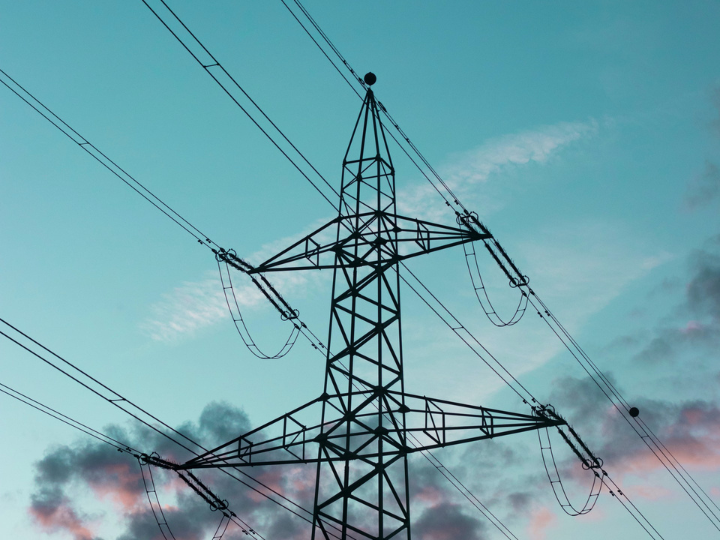by Philippe Delorme*
At the beginning of April, a landmark UN report warned that if we want to avoid environmental catastrophe, it’s a case of acting “now or never”.
Even in positive economic conditions, scientists struggle to persuade policy-makers to act on climate change. But conditions now are far from positive. Soaring inflation, snarled supply chains and energy price shocks have strengthened the political temptation to delay climate action. And all these factors have been worsened by the situation in Ukraine.
This temptation is being felt particularly strongly in the European Union: Russian imports account for almost 25% of the EU’s energy needs. No wonder, then, that as the EU works to reduce its reliance on Russian gas, several member states have begun to lean more heavily on energy sources like coal to compensate for the resulting shortfalls.
In the short term, such measures can perhaps be tolerated as a form of crisis management. But they run entirely counter to the net-zero ambitions of the EU Green Deal.
REPowerEU: a framework for climate progress
In an effort to reconcile this tension, the European Commission in May published its REPowerEU plan: a suite of policies intended to end the bloc’s dependence on Russian fossil fuels, while accelerating the green transition. It revolves around diversifying gas supplies, increasing the use of renewables and saving more energy.
From a clean energy perspective, there’s a lot to like about REPowerEU. The priority afforded to policies such as the EU Solar Energy Strategy is particularly encouraging.
But when it comes to saving energy, more can be done to incentivize consumer uptake of digital technologies that maximize energy efficiency, minimize waste and ensure that we get the most out of what we generate.
So what might such a policy approach look like?
To help regulators understand what concrete additional measures they can adopt to strengthen the REPowerEU proposals, we have published a set of 10 recommendations, focused around four key themes:
1. Digitalization as a way to boost energy efficiency: the best watt is the negawatt
When it comes to saving energy, the most rapid gains can be achieved by increasing the use of digital energy efficiency tools, both in buildings (with monitoring and control technologies) and in industry (with energy management systems).
According to the European Commission, gas imports can be reduced by 2.6% for every additional 1% in energy savings. Therefore, we estimate that, by adopting technologies to maximize efficiency of consumption, buildings and industry can annually save roughly 46 and 17 billion cubic metres (bcm) of gas imports respectively. In 2021, EU natural gas consumption amounted to 412bcm, of which 155bcm came from Russia. It means the buildings only can save the equivalent to 29.7% of annual imports from Russia.
To encourage more widespread adoption of such tools, we recommend that EU regulators integrate into the REPowerEU plan a combination of new legal mandates – notably by reforming the Energy Performance in Building Directive (EPBD) – and additional cost incentives, such as introducing tax breaks on smart meters.
2. Electrification: lower carbon emissions and greater energy efficiency
The electrification of heating in buildings and industry (currently still heavily reliant on burning gas or heating oil) will be equally crucial.
Electricity is a cleaner form of energy than burning oil or gas and, with heat pumps and other technologies already available, research indicates the EU can increase electricity use for heating processes from roughly 7% to 90% in the case of buildings, and from 30% to 78% in the case of industry.
On top of that, electrical devices are much more efficient than fuel-operated ones: The yield of an electric motor is 3x more efficient than for a gas-operated one. And, of course, electrification also means reducing the air pollution that stems from fossil-fuel combustion.
Again, here EU policy-makers can do more to encourage consumers and other end users to electrify heating. This can be achieved, for example, by lowering the costs associated with smart heat pump installation.
3. Decentralization: flexibility, resilience and renewables
We also recommend that EU regulators adopt proactive measures to decentralize our energy system. This can be done by incentivizing uptake of new technologies connected with rooftop solar panels, demand-side flexibility, microgrids and smart Electric Vehicle (EV) charging.
While the REPowerEU plan posits some positive proposals on these issues, we believe they should be a much higher priority at an EU and national level. Again, a mix of new regulatory obligations, tax incentives and planning waivers can boost demand-side uptake of such technologies.
4. Build right from the outset: optimizing energy use
Finally, instead of retrofitting to compensate for prior inefficiencies, we need to build better from scratch, leveraging digital tools to guide the design of new buildings for maximum energy efficiency.
Our research indicates that by adopting appropriate efficiency tools from the outset, the EU can, by 2030, increase energy savings by 20-30% in new commercial buildings, and by 50% in new residential buildings. An ambitious recasting of the EPBD will be fundamental to this process.
REPowerEU and energy efficiency: a time for action
The situation in Ukraine, and the energy supply shocks, underscore how important it is to expedite the EU’s transition to a more secure and cleaner energy future.
It can be done. Recall how Japan realized large-scale structural transformation at speed. In the decade following the nuclear disaster at Fukushima, the country reduced the share of electricity generated by nuclear energy from one-third in 2011 to less than 4% today. Energy savings, improved efficiency and increased use of renewables proved crucial in achieving this transition.
Europe now has the opportunity to turbo-charge its own energy transition, while at the same time improving its long-term competitiveness, and bringing about a greener and more sustainable future for its citizens.
We can’t wait any longer. The clock is ticking.
*Executive Vice-President and Chief Executive Officer, Europe Operations, Schneider Electric
**first published in: www.weforum.org




 By: N. Peter Kramer
By: N. Peter Kramer
